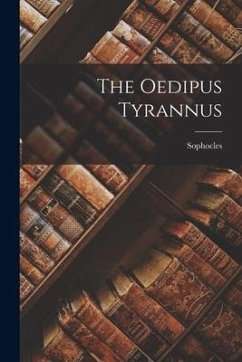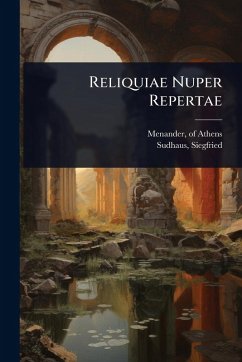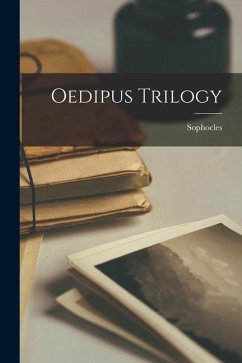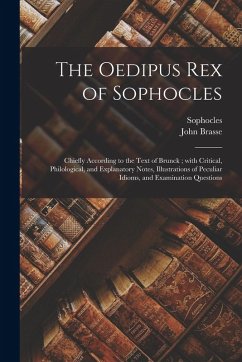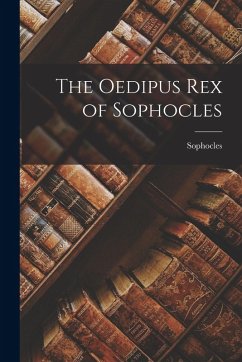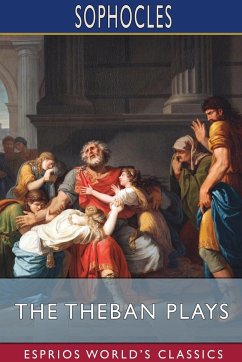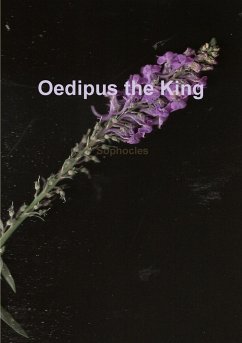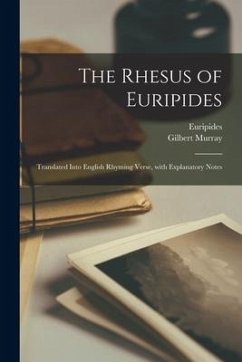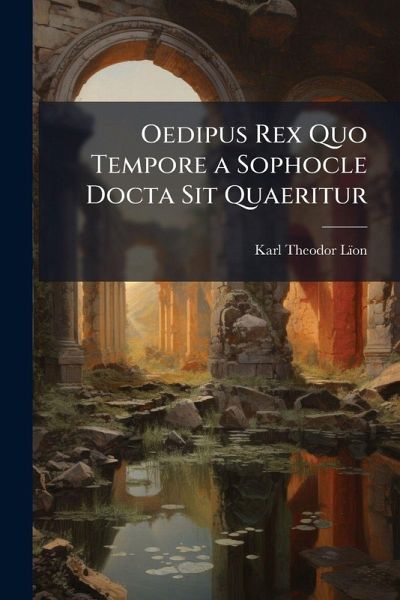
Oedipus Rex Quo Tempore a Sophocle Docta Sit Quaeritur

PAYBACK Punkte
7 °P sammeln!
Oedipus Rex Quo Tempore a Sophocle Docta Sit Quaeritur, by Karl Theodor Lïon, is a scholarly work, written in Latin, examining the dating of Sophocles' renowned tragedy, "Oedipus Rex". This study provides valuable insights into the historical context and composition of one of the most influential plays in Western literature. Lïon's analysis offers a detailed exploration of the textual and historical evidence surrounding the play's creation, making it an essential resource for classical scholars and students of ancient drama. The book contributes to a deeper understanding of Sophocles' work a...
Oedipus Rex Quo Tempore a Sophocle Docta Sit Quaeritur, by Karl Theodor Lïon, is a scholarly work, written in Latin, examining the dating of Sophocles' renowned tragedy, "Oedipus Rex". This study provides valuable insights into the historical context and composition of one of the most influential plays in Western literature. Lïon's analysis offers a detailed exploration of the textual and historical evidence surrounding the play's creation, making it an essential resource for classical scholars and students of ancient drama. The book contributes to a deeper understanding of Sophocles' work and its enduring significance. This work has been selected by scholars as being culturally important, and is part of the knowledge base of civilization as we know it. This work was reproduced from the original artifact, and remains as true to the original work as possible. Therefore, you will see the original copyright references, library stamps (as most of these works have been housed in our most important libraries around the world), and other notations in the work. This work is in the public domain in the United States of America, and possibly other nations. Within the United States, you may freely copy and distribute this work, as no entity (individual or corporate) has a copyright on the body of the work. As a reproduction of a historical artifact, this work may contain missing or blurred pages, poor pictures, errant marks, etc. Scholars believe, and we concur, that this work is important enough to be preserved, reproduced, and made generally available to the public. We appreciate your support of the preservation process, and thank you for being an important part of keeping this knowledge alive and relevant.



